Moral understanding Normal Reading Comprehension Worksheets for Ages 4-8
5 filtered results
-
From - To
Explore our "Moral Understanding Normal Reading Comprehension Worksheets" designed specifically for children ages 4-8. These engaging worksheets not only enhance reading skills but also promote moral reasoning and ethical awareness in young learners. Each activity encourages kids to think critically about choices and consequences, helping them relate narratives to their values. Perfect for home or classroom use, our resources nurture compassionate and responsible individuals through fun, age-appropriate stories and questions. Join us in fostering a love for reading while instilling important life lessons! Download our worksheets and watch your child develop both comprehension skills and a strong moral foundation.
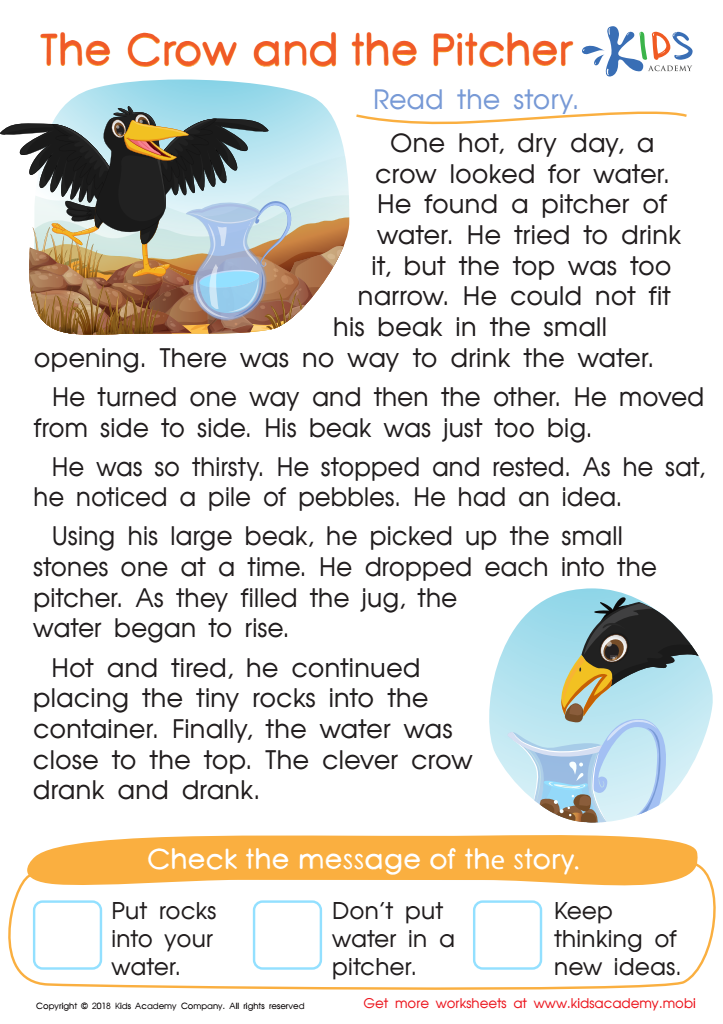

The Crow and the Pitcher Worksheet
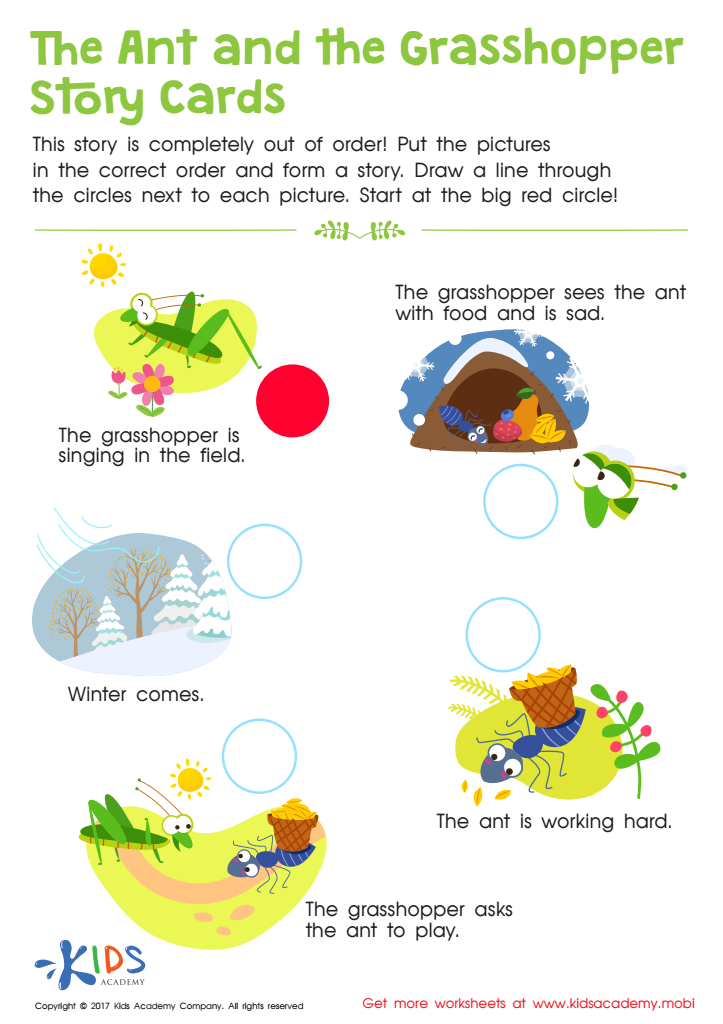

The Ant and The Grasshopper Worksheet
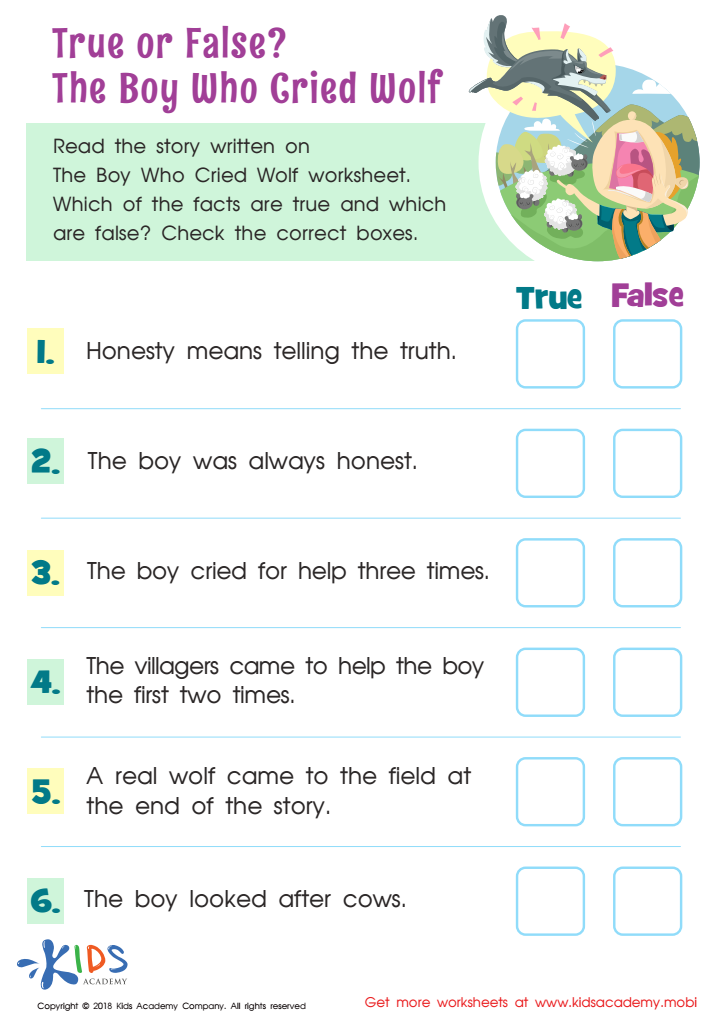

True or False? The Boy Who Cried Wolf Worksheet
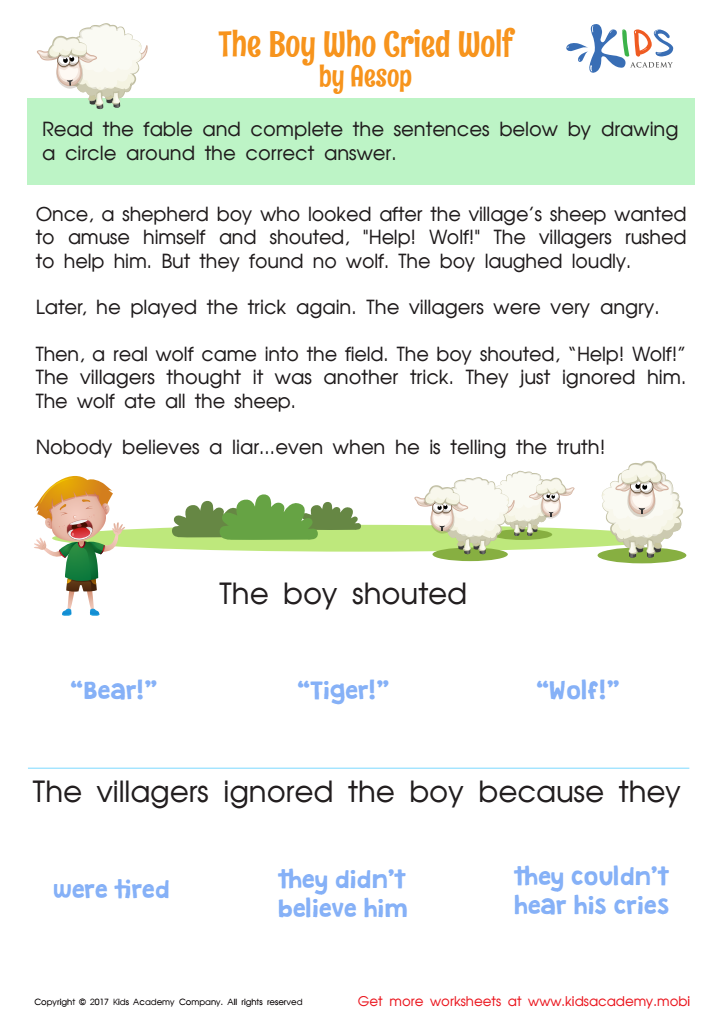

The Boy Who Cried Wolf Worksheet
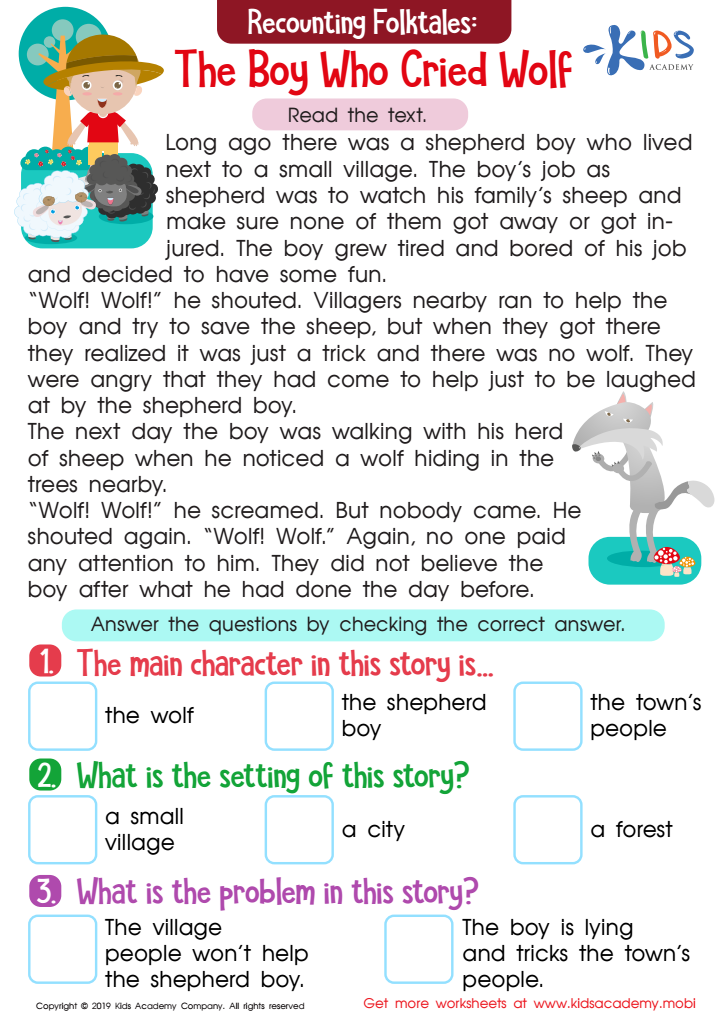

The Boy Who Cried Wolf Part 1 Worksheet
Moral understanding and reading comprehension are vital components of a child's early development, particularly for ages 4-8. As children begin to navigate their social environments, they encounter various scenarios requiring moral reasoning. By cultivating moral understanding, parents and teachers help children discern right from wrong, enhance empathy, and build stronger relationships with peers.
Reading comprehension plays a crucial role in this development. When children read stories featuring moral dilemmas, they learn to empathize with characters, reflect on choices, and grapple with consequences. This not only improves their literacy skills but also provides a safe context for discussing ethical values. Engaging children in discussions about the morals in stories promotes critical thinking, builds their ability to interpret various perspectives, and fosters deeper conversations about behavior in real-life situations.
Moreover, strong reading skills contribute to overall academic success. Children with robust comprehension abilities are better equipped to understand classroom material, participate actively in discussions, and connect with diverse ideas. Therefore, prioritizing moral understanding alongside reading comprehension not only supports emotional and social growth but also lays a solid foundation for future learning, making it essential for parents and teachers in guiding young learners.

 Assign to My Students
Assign to My Students





.jpg)










